Cells, tissues and organs -> antibodies
Antibodies
Antibodies, also known as immunoglobulins, are proteins produced by the immune system in response to the presence of foreign substances (antigens) such as bacteria, viruses, and other pathogens. They play a crucial role in the body's defense against infections and diseases.
Structure of Antibodies
Antibodies are Y-shaped proteins consisting of four polypeptide chains - two heavy chains and two light chains. The tips of the Y-shaped structure contain variable regions that can bind specifically to antigens, while the stem of the Y-shaped structure contains constant regions that determine the antibody's function.
Functions of Antibodies
Antibodies have several important functions in the immune system:
- Neutralization: Antibodies can bind to viruses or toxins, neutralizing their harmful effects and preventing them from infecting host cells.
- Opsonization: Antibodies can bind to pathogens, marking them for destruction by phagocytic cells such as macrophages.
- Activation of the complement system: Antibodies can trigger the complement system, a group of proteins that work together to destroy pathogens.
- Stimulation of inflammation: Antibodies can stimulate the release of inflammatory chemicals, which recruit immune cells to the site of infection.
- Memory: After an initial exposure to an antigen, the immune system can produce memory B cells that "remember" the antigen and mount a faster and more effective response upon subsequent exposures.
Types of Antibodies
There are five main classes of antibodies, each with specific functions:
- IgM: The first antibody produced during an initial immune response.
- IgG: The most abundant antibody in the blood and the main antibody involved in secondary immune responses.
- IgA: Found in mucous membranes, saliva, tears, and breast milk, providing localized immunity at mucosal surfaces.
- IgE: Involved in allergic reactions and defense against parasitic infections.
- IgD: Found on the surface of B cells and involved in the activation of B cells.
Study Guide
- What are antibodies and how are they produced?
- Describe the structure of antibodies and their binding sites.
- Explain the functions of antibodies in the immune system.
- Discuss the different classes of antibodies and their specific roles.
- Compare and contrast primary and secondary immune responses involving antibodies.
◂Science Worksheets and Study Guides Fifth Grade. Cells, tissues and organs

 Worksheet/Answer key
Worksheet/Answer key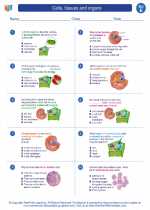
 Worksheet/Answer key
Worksheet/Answer key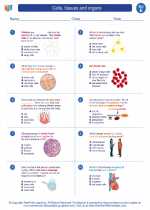
 Worksheet/Answer key
Worksheet/Answer key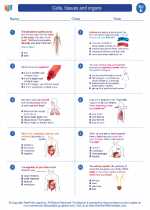
 Vocabulary/Answer key
Vocabulary/Answer key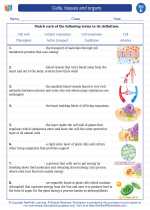
 Vocabulary/Answer key
Vocabulary/Answer key
 Vocabulary/Answer key
Vocabulary/Answer key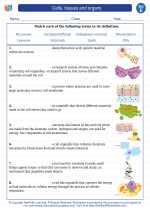
 Vocabulary/Answer key
Vocabulary/Answer key
 Vocabulary/Answer key
Vocabulary/Answer key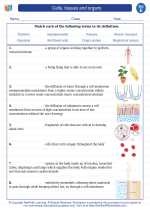
 Vocabulary/Answer key
Vocabulary/Answer key
